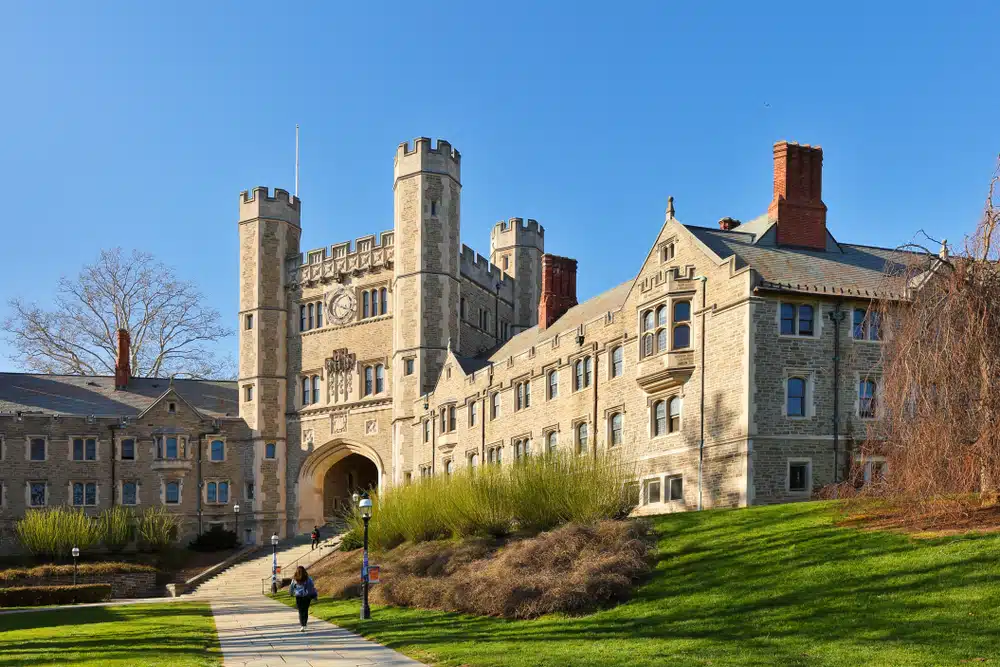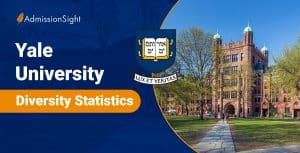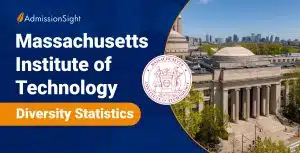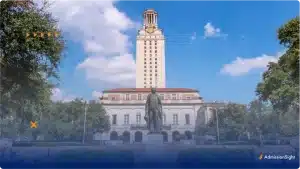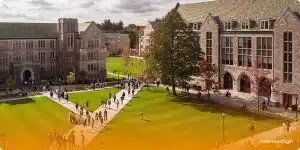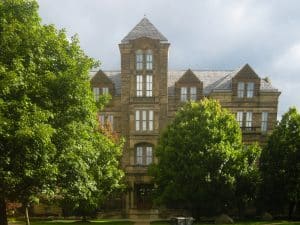Exploring the Unique Traditions of Princeton University
Steeped in historical significance and pioneering spirit, Princeton University is a beacon of intellectual exploration and academic rigor. An essential part of this rich legacy and the spirit of Princeton’s identity resides in its unique traditions- customs that are at once celebrated, respected, and cherished by students, faculty, and alumni alike. From the ceremonial to the seemingly whimsical, Princeton’s traditions offer fascinating insights into the university’s history, ethos, and aspirations.
Understanding Princeton’s Historical Background
The legacy of Princeton University is firmly rooted in its historical beginnings. Established in 1746, Princeton holds the honor of being the fourth-oldest university in the United States. Over the centuries, Princeton University has evolved to stay true to its educational missions while honoring its rich historical background.
Princeton University began with its founding as the College of New Jersey in Elizabeth. The college was established with the noble purpose of training ministers, aiming to provide a quality education that would shape the future leaders of the young nation. However, the college’s location was not set in stone, and it soon found its first home in Newark, New Jersey, a year after its establishment.
As the college grew and flourished, it sought a more permanent location to solidify its place in American academia. In 1756, the college made its final move to Princeton, New Jersey, a picturesque town with a rich history. This relocation marked a significant milestone in the institution’s history, as it firmly established its roots in the heart of American higher education.
With its new home in Princeton, the college underwent a series of transformations that would shape its future. It expanded its academic offerings, embracing a broader range of disciplines and fields of study. The college’s commitment to intellectual curiosity and the pursuit of truth led to the development a world-class faculty, attracting renowned scholars and experts in various fields.
In 1896, the college officially changed its name to Princeton University, aligning itself with the town that had become its home. This name change symbolized the deep connection between the institution and its surrounding community and its commitment to fostering a strong sense of identity and pride.
The Founding of Princeton University
Founded as the College of New Jersey in Elizabeth, it was intended to train ministers. The college relocated to Newark a year later and finally to Princeton in 1756, securing its roots in the heart of American academia. The name “Princeton” was adopted in 1896, aligning the institution with its hometown.
Princeton’s journey began with a small group of dedicated individuals who recognized the importance of education and its role in shaping the future. Inspired by the ideals of the Enlightenment, they sought to establish an institution that would provide a rigorous education grounded in reason and critical thinking.
As the college grew, it faced numerous challenges and obstacles. The American Revolution, for instance, posed a significant threat to its existence. However, the college persevered, adapting to the changing times and emerging as a resilient institution that would withstand the test of time.
Throughout its history, Princeton University has remained committed to its founding principles while adapting to the evolving needs of society. It has embraced diversity, inclusivity, and innovation, fostering an environment where students from all walks of life can thrive and succeed.
Princeton’s Evolution Through the Centuries
From its early beginnings as a modest institution, Princeton University has evolved through the centuries into a renowned, globally recognized educational establishment. Nurturing a profound respect for knowledge, intellectual curiosity, and the pursuit of truth, Princeton expanded its academic offerings and built a world-class faculty, cultivating an environment where innovation, scholarship, and knowledge creation thrive.
Over the years, Princeton has witnessed significant milestones and transformative moments. It has played a crucial role in shaping the intellectual landscape of the nation, producing influential thinkers, leaders, and innovators who have made lasting contributions to various fields.
Princeton’s commitment to excellence extends beyond the classroom. The university boasts a vibrant campus life, offering various extracurricular activities, clubs, and organizations catering to diverse interests. From performing arts to community service, Princeton provides students with ample opportunities to explore their passions and positively impact the world.
Today, Princeton University stands as a testament to the power of education and the enduring legacy of its historical roots. It continues to push the boundaries of knowledge, inspire generations of students, and contribute to the betterment of society. As the institution looks to the future, it remains dedicated to its core values, ensuring that the spirit of Princeton will continue to thrive for generations.
The Significance of Princeton’s Traditions
Traditions play an instrumental role in shaping the culture and identity of any institution. For Princeton, practices act as the threads weaving the tapestry of shared experiences, fostering a sense of community and continuity.
With its long and storied history, Princeton University is a place where traditions hold a special place in the hearts of students, faculty, and alumni. These traditions not only serve as a way to honor the past but also as a means to create lasting memories and connections.
The Role of Traditions in University Culture
Historical traditions act as living testimonies to Princeton’s past, reflecting the university’s legacy and adding to the richness of campus life. Each tradition carries with it a story, a piece of history that has been passed down through generations of Princetonians.
One such tradition is the annual Reunions Parade, a vibrant celebration where alumni worldwide come together to reconnect with old friends and relive their college days. The parade showcases the diverse accomplishments of Princeton graduates, highlighting their impact in various fields.
Another cherished tradition is the singing of “Old Nassau,” the university’s alma mater. With its powerful lyrics and stirring melody, this beloved song serves as a unifying force, bringing together students, faculty, and alumni in a shared moment of pride and nostalgia.
How Traditions Foster a Sense of Community
Traditions unite people. At Princeton, whether you’re a first-year student finding your footing, a graduate student immersed in research, or an alumnus returning for a reunion, these traditions foster a sense of belonging to a larger community. Participating in these customs connects every Tiger to the broader lineage of Princeton scholarship, creating an enduring sense of connection.
For incoming students, traditions serve as a welcoming embrace, providing comfort and familiarity amid the new and unknown. From the moment they step on campus, they are enveloped in a community that values its history and celebrates its shared experiences.
Graduate students, too, find solace in these traditions. As they delve into their research and pursue their academic passions, they are reminded that they are part of something greater than themselves. The customs and rituals that have been passed down through the years serve as a reminder of the long line of scholars who have come before them, inspiring them to push the boundaries of knowledge.
For alumni, traditions offer a chance to reconnect with their alma mater and relive the memories that shaped their lives. Returning for a reunion, they are greeted by familiar faces and a sense of nostalgia that brings back the joy and excitement of their college days. These traditions serve as a bridge between the past and the present, reminding them of the enduring impact of their Princeton experience.
In conclusion, traditions at Princeton University are not merely rituals or customs. They are the institution’s lifeblood, breathing life into its culture and creating a sense of unity among its diverse community. From the annual Reunions Parade to the singing of “Old Nassau,” these traditions serve as a testament to the university’s rich history and the enduring spirit of Princetonians past, present, and future.
An Overview of Princeton’s Unique Traditions
Princeton’s traditions set the stage for preserving its legacy, celebrating its community, and marking significant milestones. Whether fueled by academic rigor or the spirit of camaraderie, these traditions speak volumes about the Princeton spirit.
Princeton University, founded in 1746, has a rich history deeply intertwined with its traditions. These traditions add color and vibrancy to campus life and foster a sense of belonging and pride among the Princeton community.
Academic Traditions at Princeton
One of the oldest academic trademarks of Princeton is the rigorous senior thesis, a capstone research project required of all undergraduate students. This tradition dates back to the early days of the university and remains a cornerstone of Princeton’s academic excellence. The senior thesis allows students to delve deep into a subject of their choice, conducting original research and contributing to their respective fields of study.
In addition to the senior thesis, Princeton boasts the tradition of “Princeton in the Nation’s Service and the Service of Humanity.” This motto, coined by Woodrow Wilson, who served as Princeton’s president before becoming the 28th President of the United States, reflects the university’s commitment to civic engagement and social responsibility. It encourages students to apply their knowledge and skills for the betterment of society, fostering a culture of public service that extends beyond the classroom.
Social Traditions and Events
On the social front, Princeton’s Reunions are a highlight of the academic year. Known as the best-attended college reunion in the world, this event is a high-spirited celebration that brings Tigers of all generations back to campus. Alumni from near and far gather to reconnect with old friends, reminisce about their college days, and participate in various activities and events. From class dinners to parades, Reunions create lasting memories and strengthen the bond between Princetonians across different generations.
Another beloved tradition is the Lawnparties, a biannual concert event that is a much-needed break from the rigorous academic grind. Held on the beautiful green lawns of Princeton’s campus, Lawnparties features live music performances by renowned artists and bands. Students and faculty come together to enjoy the music, dance, and soak in the vibrant atmosphere. It is a time to relax, unwind, and celebrate the diverse talents and interests within the Princeton community.
Athletic Traditions and Rivalries
Among the athletic traditions, the storied Princeton-Yale football game draws crowds of fans each year. This rivalry, dating back over a century, is among the oldest and most intense in college football. The game is about the sport and the camaraderie and spirit of competition between the two Ivy League institutions. The excitement and energy in the stadium during the Princeton-Yale football game are palpable, creating an unforgettable experience for both players and spectators.
Just as compelling are the traditional bonfires lit on Cannon Green to celebrate major football victories against Harvard and Yale in the same season. These bonfires symbolize triumph and unity, bringing the Princeton community together to revel in the success of their athletic teams. The crackling flames and the crowd’s cheers create an electrifying atmosphere, igniting a sense of pride and solidarity among students, alumni, and fans.
The Impact of Traditions on Princeton’s Identity
Princeton’s traditions don’t just commemorate its history; they shape the university’s identity and reputation.
Traditions and Princeton’s Global Reputation
Unique traditions, backed by the academic prowess of Princeton, have significantly contributed to its global reputation. These customs tell a story of Princeton’s ethos and undying spirit, fostering a distinctive identity that sets it apart worldwide.
How Traditions Influence Student Life
These traditions pique a sense of belonging on campus and shape students’ experiences beyond their academic journey. They forge lifelong bonds among Princetonians and offer much-needed anecdotes of joy, shared experience, and shared memory – crucial elements of the personal growth and development encouraged at Princeton.
The Future of Traditions at Princeton
Traditions serve as a bridging point between history and novelty, embodying a continuity of the Princeton spirit. However, they also pave the path for developing new customs reflective of the evolving times.
Preserving Traditions in a Changing World
In an increasingly globalized and digitized world, the challenge lies in preserving these age-old traditions while keeping them relevant. Some practices, like the recently established ‘Pre-rade’ at the beginning of Freshmen’s week, illustrate how the Princeton community is adept at seamlessly integrating old customs with new experiences.
New Traditions Emerging at Princeton
As Princeton University continues to grow and evolve, so do new traditions. Recent innovations, like the environmentally-friendly Greening Princeton and the all-female a cappella group, the Tigerlilies, exemplify the birth of unique customs. These fresh traditions demonstrate Princeton’s commitment to inclusivity and sustainability, highlighting its ongoing evolution while honoring its celebrated past.
Traditions, each a chapter in the story of Princeton University, weave a tapestry that pays tribute to its past, celebrates its present, and looks forward to its future. They are a testament to the enduring Tiger spirit, ever-burning and evergreen.
If you want to discuss the matter to a greater extent or inquire about college admissions, look no further! Our experts here at AdmissionSight can help you! Here at AdmissionSight, we have over a decade’s worth of experience guiding students through the competitive admissions process to get accepted to the top universities in the world. Feel free to set up an appointment today to book your initial consultation.



